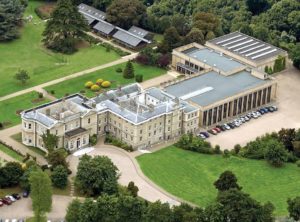
One of the first decisions you have to make, assuming you are going private, is between the British system and international schools. There are considerable differences between the curricula and approaches, but even practical considerations. First, let us consider the practical aspects, as they can be a deciding factor even before you look into theoretical issues.
First of all, there is the elephant in the room, school fees! British prep schools in Central London vary in cost somewhere between £15k and £20k per year, with a few exceptions in either direction. Most international schools, in turn, charge between £18,000 and £25,000 in the first years. International schools in Central London, such as the American School in London and Southbank International School, are obviously the ones with the highest fees. From an economic standpoint, British prep schools are definitely more attractive. At least this is the case for American / IB schools. Other international schools, such as most French schools and the German or Swedish schools, for example, tend to charge lower fees than British schools.
Then there is the issue of location. There is a wide variety of British prep schools in all neighbourhoods of London, as you would expect, but there are not many international schools in Central London, and children come from far and wide, often by school bus. The American School in St John’s Wood, Southbank International School in Kensington and Hampstead, and the International Community School in Marylebone are the main Central London international schools, but if you don’t happen to live nearby, you may not have much of a choice. You would have to go further out to The American School in England (TASIS, Surrey), ACS International School in Cobham (Surrey) or Hillingdon if you wanted an international school outside of London with excellent, spacious facilities. But unless you live in Richmond or Chiswick already, they may not be accessible.
Another aspect expats may be worried about is how welcoming and international the school community would be. Some parents new to London tend to assume that the expat kids are to be found in international schools, as is the case in other expat cities around the world, and that British prep schools are not diverse or welcoming. I would say that at least for Central London neighbourhoods, this is not the case, and even at a traditional prep school, as many as 80% of the children or more might be internationals. However, there tends to be a difference in pupil turnover. The population at international schools does tend to be more transient, with more parents on limited expat assignments, and you could easily see 20-25% of turnover per year. Being London, you would always see about 10% turnover even at a British prep school, so you will have some change in student body in both types of schools, although certainly you will see more of it at an international school.
Apart from these peripheral considerations, the key difference is the curriculum and hence the expectations the school will have for your child. The British curriculum is certainly more formal and traditional in the early years, and more specific about knowledge and skills that children would be expected to acquire in the first years of school. While the Reception year is part of the Early Years Framework and encourages learning through play, children would still spend around 2 hours per day (this varies by school, pre-preps would be more formal and more relaxed prep schools till 11 or 13 tend to be more playful) on more structured activities (reading, writing, Maths). In Year 1, children would already move to a structured timetable and have little time to play, apart from break time.
Many prep schools introduce cursive writing from the start, and your 4 year old will bring home worksheets to practice writing their cursive “f”s and “k”s, which many parents might well struggle with! They will wear a uniform, too, of course, and be expected to change in and out of it for PE lessons. Inevitably, many children rise to the challenge, but you have to ask yourself as a parent if you want your child to worry about how to button up their shirt fast enough or how to write in cursive at that age. The long-term benefit of pushing children to read and write before 6 is relatively questionable, so in a way you will have to forget what you know and believe in and go along with what the school is doing. You can’t really tell your child they don’t have to do their homework, so if the school gives you cursive writing sheets to fill in, you will have to ask your child to do it, even if you don’t believe in it yourself. I am making it sound bad now, just be aware that the style can differ enormously between all the British prep schools, with some on the very formal and some on the progressive end of the spectrum, so find out how the school approaches reading, writing and homework in the first years.
Even beyond the first year, British schools tend to introduce advanced concepts very early, potentially too early, at a time when most children probably don’t really understand them. For example, you may be wowed at first that your 5 year old is doing fractions at school when you didn’t find out about them until you were 11, but you will quickly see that they will be covered at a basic level and your child will not understand it in a way that you did when you learnt it properly as an older child. The same goes for story writing. I am not sure why the emphasis is on being able to write a coherent story with beginning, middle and end, by age 6 or 7. 6 year olds are taught about story maps and story constructions, character development. This all sounds very impressive, but why not focus on reading and ideas first, and worry about forcing a structure on it at age 9 or 10? Why the worry about the product and not about the process? Obviously, if you are applying for 7+ entrance, you need to be able to write a page that makes some sort of sense, but even prep schools that have time till 11 or 13 seem to require children to write perfect stories by Year 2. Are they really going to be better writers in adulthood? Or are they going to see writing as a chore that follows a specific formula?
International schools tend to be more progressive, emphasising ideas and exploration over specific knowledge. Of course, this might also mean they are not as challenging academically in the early years (or challenging in a different way?), so if your child is very advanced and mature for her age, a British school may be a perfect fit. At the secondary school level, the academic standard of the two systems converges, but you will still find differences. The British History curriculum, for example, is heavily focused on the British perspective of World War II, while you would expect to study World History at an international school, with a more global perspective. International schools might also offer more optionality in terms of senior school subjects. The American School offers modules in World Civilisations, Game Design and App Development, Anatomy and Physiology, Russian Literature, Journalism, Arabic and Microeconomics, for example. I know which option I am more excited about!
The exams are another consideration. Most international schools are all-through schools, so children can stay there from 4 or 5 till 18, if that is what you want, without having to worry about exams. At a British prep school, parents will soon start worrying about the 11+ or 13+ exam, and once they have finally gotten into a secondary school, parents worry about GCSE exams, and then A-Levels. It certainly isn’t for the faint-hearted!
If you are unsure which way to go, a safe approach may be to go for a relatively progressive or gentle British prep school in the beginning, and then keep international schools in mind in case things don’t work out or you want a change at a later stage. An international school would be the right choice at a young age if fees are not a constraint for you and you feel your child would not thrive in a more formal, academically accelerated environment.

Thinking about ACS cobham for my 3.7 years and 10 years old. should i go for state school or international school?
Thank you for the article. This is the exact dilemma I am going through at the moment. What do you know/think of Fulham (pre)Prep? I have not seen a mention of it on your website. Would you call it ‘British formal’ or ‘British progressive’ school (using the terminology in your article). And how would you rate it compared to the Roche School and Thomas’s? Thank you.
Fulham Prep is on the progressive side, they ramp it up very slowly, so the pre-prep department especially will be gentle and creative. Same for Thomas’s and The Roche.
Thank you for your reply. Is there a reason why Fulham prep is not mentioned on your website/blog? Thank you.
Hello there.
Not sure on which page it would be appropriate to leave this question:
What do you think about Fulham (pre) Prep? I can only see their mention in the Open Mornings section but nothing throughout your website. How would you rate it compared to Thomas’s and Roche, for example. And would you call it ‘British formal’ or ‘progressive’ using your language in the above article? Many thanks.